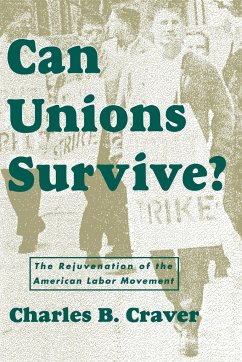When employees at firms like Greyhound and Eastern Airlines walk out to protest wage and benefit reductions, they are permanently replaced and their representative labor unions destroyed. Every year, the threat or drama of a high-profile strike - in air traffic control towers, at Amtrak, or at Caterpillar - makes national headlines and, every year, several hundred thousand unrepresented American employees are discharged without good cause. During the past decade, employer opposition to unions has increased. Industrial and demographic changes have eroded traditional blue-collar labor support. Class-based myths have discouraged organization among white-collar workers. As the American labor movement begins its second century, it is confronted by challenges that threaten its very existence. Is the decline of the American labor movement symptomatic of a terminal condition? In this book, Charles Craver presents an incisive analysis of the current state of the American labor movement and a manifesto for how this crucial institution can be revitalized. Journeying with the reader from the inception of labor unions through their heyday and to the present, Craver examines the roots of their decline, the current factors which contribute to their dismal condition, and the actions that are necessary - such as the recruitment of female and minority employees and appeals to white-collar personnel - to ensure union viability in the twenty-first century. Craver thoughtfully discusses what labor organizations must do to organize new workers, to enhance their economic and political power, and to adapt to modern-day advances and to an increasingly global economy. He also suggests changes that must be madein the National Labor Relations Act. This book is essential reading for lawyers, scholars, and policymakers, as well as for all those concerned with the future of the labor movement.
Hinweis: Dieser Artikel kann nur an eine deutsche Lieferadresse ausgeliefert werden.
Hinweis: Dieser Artikel kann nur an eine deutsche Lieferadresse ausgeliefert werden.








